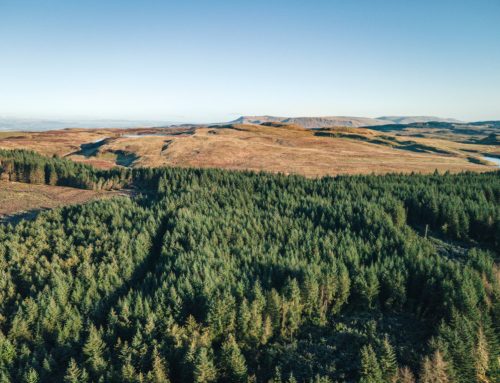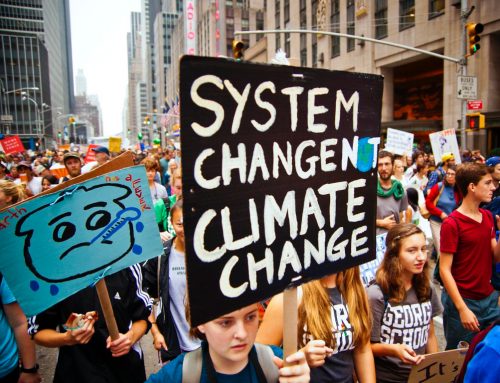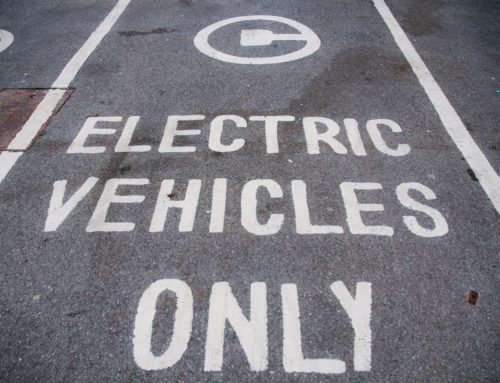by Peter Jones
8 minute read
The Liberal Democrats do not appear to be faring well in public opinion compared with five years ago. Perhaps their role in propping up a government with a broadly Conservative agenda has alienated their left-leaning supporters – or perhaps there are just more options available for those who don’t want to vote either Labour or Tory.
The party’s response to their electoral predicament is a long and detailed manifesto, supported by a fancy mini website, which appears to place the environment at the forefront. The front page (which apparently contains the Lib Dems’ “red line” policies that would be a precondition of any coalition agreement) highlights their proposal for five green laws, covering nature, resource efficiency, carbon emissions, transport and housing.
Their proposed legislation would put the Natural Capital Committee (NCC) on a statutory footing, from which position it would be tasked with producing a ‘Stern report’ on sustainable resource use, investigating the potential for new resource taxes such as deposit refunds, and recommending how to meet new natural capital targets on biodiversity and pollution. While we await those findings, what else will the Lib Dems’ “green guarantee” deliver if they’re part of the next government?
Energy and Climate Change
The Lib Dems set out a number of clear targets for reducing the UK’s CO2 emissions further and faster than the law currently requires, using 50% of tax receipts from shale gas to set up a Low Carbon Transition Fund. They would set a legally-binding target for a Zero Carbon Britain by 2050, to be monitored and audited by the Committee on Climate Change. By 2030, 60% of electricity would be from renewables, reducing CO2 per kWh to 50-100g, while generation from unabated coal would be stopped by 2025.There would be grid and energy storage investment to back up the switch to renewables. They would also facilitate the development of renewable heat systems, using deep geothermal, large-scale heat pumps, and waste industrial sources.
There would be a major push for energy efficiency, with new energy efficiency and heat saving regulations. The Lib Dems would bring a Council Tax discount where significant improvements are made in a house’s energy efficiency. All social and private rented homes, and all fuel-poor households, would be brought up to Energy Performance Certificate Band C by 2027.
Recognising the likely impact of climate change, the Lib Dems would draw up a national resilience plan, and update construction and planning standards to futureproof buildings against higher summer temperatures. They would also research ‘back-to-nature’ flood prevention schemes, and increase sustainable urban drainage systems.
Green Grade: B. A wide-ranging and challenging objectives are set for CO2 reduction in the energy sector, including the neglected topic of renewable heat. However, the Lib Dems are seemingly reliant on a shale gas boom for funding and the successful delivery of carbon capture and storage technology to enable their goals to be achieved.
Land use and wildlife
The Lib Dems say they aim to increase access to an improved natural environment in the UK. To this end, they would expand the Right to Roam (in unspecified ways) and introduce a new designation of ‘National Nature Parks’ that they say would protect up to a million acres of accessible green space – although it is again unclear what form this protection might take.
That’s especially true when, while being just as keen on brownfield development as other parties, the Lib Dems commit to developing 10 new garden cities in SE, presumably paving over a good deal of accessible green space in the process.
They commit to following the recommendations of the Independent Panel on Forestry – which sounds good, but would appear to mean some protection alongside an increase in the extent to which forests are actively managed as sources of timber and fuel) and to planting about 750,000 trees each year. They would protect bees and other pollinators, including legal protection for bumblebee nests, but indigenous wildlife isn’t otherwise mentioned.
Green Grade: D. The Lib Dems have a few eye-catching proposals, but some sound greener than perhaps they are in reality. The garden city proposal is difficult to square with their commitment to protect the countryside. They’re shorter on detail and narrower in scope here than in other parts of their manifesto.
Food, Farming and Fisheries
The Lib Dems hold a number of rural seats, and their interest in agricultural issues is evident in their manifesto commitment to introduce a National Food Strategy to promote the production and consumption of healthy, sustainable local and affordable food – not just at home, but in public bodies such as hospitals. They would encourage sustainable food production, conservation and tackling climate change through changes to how Common Agricultural Policy payments are directed.
At sea, there is a promise of national plan for sustainable fishing and an “ecologically coherent” network of marine protected areas, with “appropriate” management – it’s unclear whether that means stricter conservation rules.
Green Grade: C. Good so far as it goes, especially in utilising the public sector’s buying power, but there’s little detail to help assess whether the changes would have a real impact.
Waste and Recycling
The Lib Dems seem to appreciate the importance of waste management, and the need to manage resources through a more circular economy. They promise regulation for sustainable design and packaging reduction, and would set England a 70% recycling target, though no date is specified. Food waste collections would reach 90% of homes by 2020.
They would use tax and regulation to drive up reuse and recycling, reinstating the Landfill Tax escalator and extending it to the lower rate. They would consult on an incineration tax, and ask the NCC to investigate the potential for other resource taxes, including deposit refund schemes.
Environmental crime, presumably including waste crime, also gets a mention with non-specific proposals for increased enforcement of environmental regulations and higher penalties.
Green Grade: B. It seems as though the Lib Dems are fully on board with the circular economy. If they committed to implement measures they only promise to explore, this could easily be an A grade.
Transport
Reducing emissions and improving public transport are targets for the Lib Dems. They would support stronger EU vehicle emission standards, and encourage the market for electric vehicles, with support for buses, coaches, taxis and light freight, and early requirements to use low emission vehicles in the public sector. They would facilitate the UK-wide introduction of hydrogen fuelling infrastructure and from 2040, only Ultra-Low Emission vehicles would be permitted on UK roads for non-freight purposes. However, in the short term they would try to extend the fuel discount scheme for remote areas.
All rail lines would be electrified by 2030, and HS2 would be constructed with an intercity cycleway along its length. They would implement the recommendations of the Get Britain Cycling report, including spending £10 per head of population (from existing budgets) on cycling infrastructure.

The greenest coalition partners ever? The Liberal Democrats’ manifesto contains some hand-waving, but some strong policy proposals. Photo by David Spender, via Wikimedia Commons.
There would be support for local areas that wish to re-regulate buses, and there would be a five-year investment plan for bus transport. Local authorities and communities would also be given powers to improve transport, with the main one mentioned being the ability to introduce Oyster Card-like network-wide ticketing.
Green Grade: C. The proposals on vehicle transport are ambitious, but there is nothing on increasing rail capacity and it’s unfortunate that bus re-regulation has to be driven locally. Support for cycling is welcome, but the HS2 cycleway seems largely symbolic.
Pollution
In addition to the promised NCC review, the issue of pollution would be addressed through a National Air Quality Plan and a range of measures to back it up. There would be a legal requirement targeted at the most polluted towns and cities, to create Low Emission Zones, and new incentives for local schemes to cut transport-related pollution.
The Lib Dems would support for new EU proposals on air quality and plan to move more quickly towards existing EU standards for concentrations of nitrogen dioxide. There would be a review of the MOT process, to see whether emissions from existing vehicles could be cut, and there would be new, unspecified green taxes to “discourage pollution and reward sustainability”.
Green Grade: B. While it is again short on specifics, the direction of travel promoted by the Lib Dems is very positive. A lot would turn on what the NCC’s natural capital targets ended up looking like.
Other Notable Polices
The manifesto proposes a number of other environment al polices, most notably introducing water meters in all water-stressed areas by 2025, and encouraging their uptake elsewhere. The Lib Dems back the Green Investment Bank, and would give it borrowing powers, with no mention of adjusting how it assesses investments.
Overall Grade: B minus. The Lib Dem manifesto is a lot greener than one might expect from a party that claims with a straight face to have ensured that the coalition government “has been the greenest ever”. Ambitious on climate change, waste and transport, a few firmer commitments and better proposals on land use would have made it excellent.
Read our other manifesto analyses:






Leave A Comment